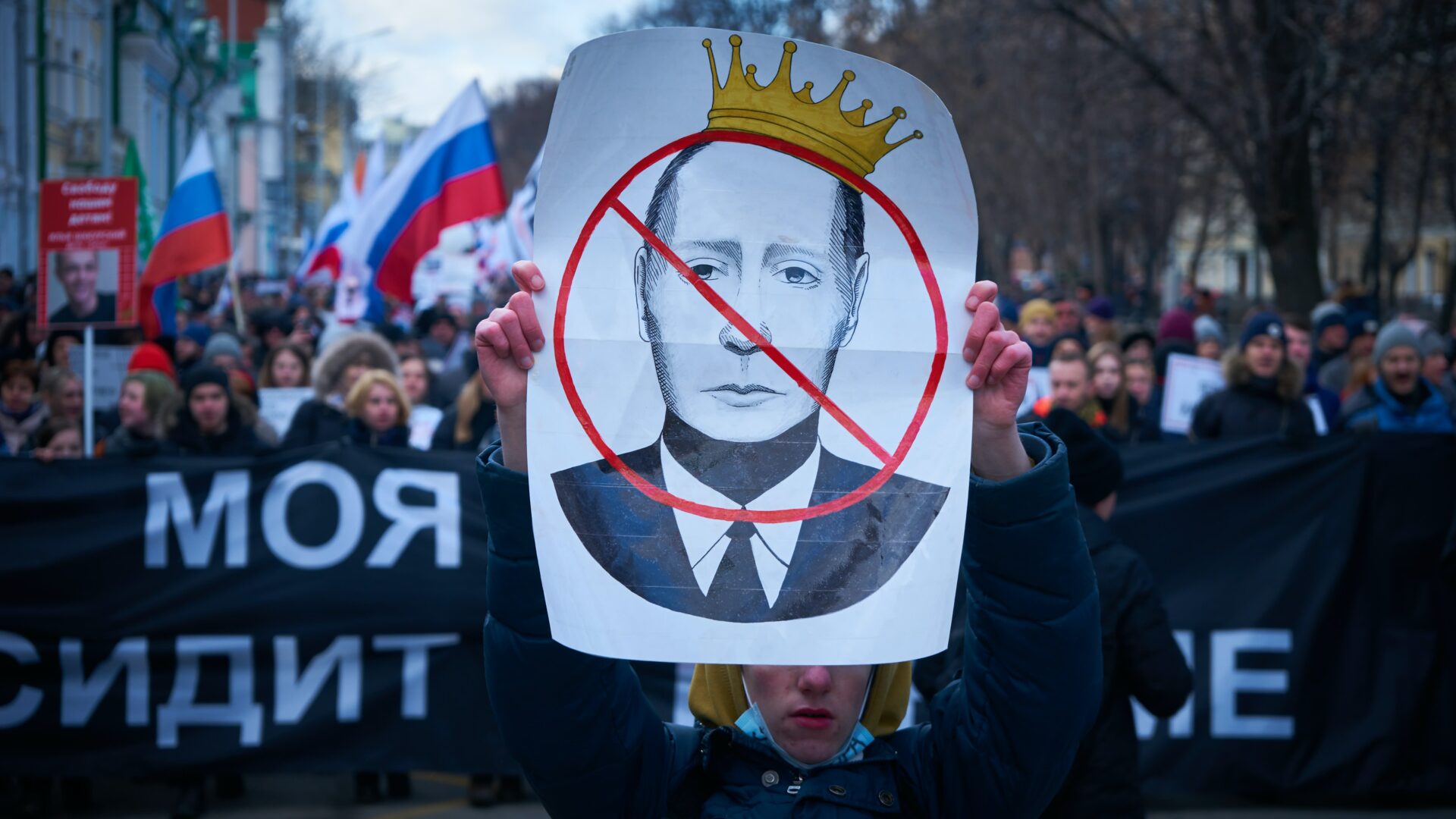Waiting for Ukraine: Salvation or Hanging?
Vladimir: “We’ll hang ourselves tomorrow. Unless Godot comes.”
Estragon: “And if he comes?”
Vladimir: “We’ll be saved.”
Samuel Beckett, Waiting for Godot
Exactly what sort of adversary is Vladimir Putin in Ukraine? At one basic level, it’s not a difficult question. Plainly and irremediably, the Russian president is a barbarous human being. Further, as head of state with the world’s largest nuclear weapons inventory, these traits could suggest unprecedented “hangings” among his conquered peoples.
Not discernible here are any expressions of personal reformation or redemption.
More specific queries should also arise. To begin, it’s reasonable to ask, is Putin “normal?” In candor, this brutally stark query offers no prospect of eliciting tangible analytic insights. Any meaningful definitions of normalcy would be deeply subjective and nearly impossible to operationalize. A better question, therefore, would inquire about the Russian dictator’s “rationality.”
A rational leader, in the academically disciplined study of world politics, is one who values his country’s national survival more highly than any other preference or combination of preferences.
Does such a primal preference ordering accurately describe Vladimir Putin? Or would he more plausibly prove willing to tolerate grave security risks to Russia in exchange for presumptively enhanced personal power and prestige? In essence, US President Joe Biden, and America’s NATO allies will need to understand that even a rational Vladimir Putin could pose existential threats to certain nation-states. In a variety of cases – because of increasingly probable decisional miscalculations that could occur during episodes of intense crisis – a seemingly rational Putin could pose greater perils to world legal order than an irrational Russian president.
Credo quia absurdum, warned the ancient philosopher Tertullian. “I believe because it is absurd.” In all such complex matters, it will be critically important for pertinent national decision-makers to differentiate between a Putin who is “merely evil” from a Putin who is potentially irrational or subject to literal madness: “Do you know what it means to find yourselves face to face with a madman,” inquires Luigi Pirandello in Act II of Henry IV, “with one who shakes the foundations of all you have built up in yourselves, your logic, the logic of all your constructions?”
But the Russian war against Ukrainian noncombatants is not “just” about evil or madness. After World War II and the Holocaust, American psychiatrist Robert Jay Lifton interviewed Nazi (SS) doctors. Perplexed as a physician, that such monstrous Nazi crimes could ever have been justified as “hygiene,” Lifton was determined to answer some basic questions. Most elementary of these was the following: How could the Nazi doctors have managed to conform large-scale medicalized killing of innocent and defenseless human beings with otherwise normal private lives?
In similar fashion, US and other world leaders ought now to inquire about Vladimir Putin and his all-too-many Russian underlings, enablers and otherwise witting allies: How can these people witness the daily aggression and genocide now being inflicted in Ukraine by thousands of Russian soldiers, and continue “per normal” with their own day-to-day lives? In present day academic parlance, this would be called a “bystander” issue.
There is more. It was not unusual for Nazi doctors to remain good fathers and husbands while systematically murdering “sub-human” children. These defiling physicians (doctors sworn by Hippocratic oath to “do no harm”) were capable of supervising genocidal mass murders six days a week (on Sundays they “normally” went to church). Now, we must inquire along very similar lines of questioning: Are Russian soldier-murderers in Ukraine also able to remain good fathers and husbands? If so, what would this mean for the future of “Cold War II” between Washington, Moscow and assorted other nation states? Should the nations now more urgently expect a “hot” war?
To the physician, the Oath of Hippocrates pledges that “I will keep pure and holy both my life and my art.” When asked about this unwavering duty, most interviewed SS doctors felt no contradiction. In Nazi pseudo-biology, “The Jew” was “a source of infection.” Ridding society of Jews, it followed, was a properly “anti-infective” medical goal. All such murderous “excisions” were conceptualized as recognizable obligations of “healing,” “compassion” and “racial hygiene.”
The duality of good and evil within each individual person is a very old idea in western thought, most notably in German literature, from Johan Wolfgang von Goethe and Friedrich Nietzsche to Hermann Hesse and Thomas Mann. Always, in studying this literature, humans may learn that the critical boundaries of caring and compassion exist most genuinely within each individual person. As Putin-ordered Nuremberg-category crimes continue to escalate, it is finally time to acknowledge that the walls of human normalcy, abnormality and rationality are conspicuously porous; they can allow even a single individual to navigate easily between polar extremes.
After attending the 1961 Eichmann trial in Jerusalem, political philosopher Hannah Arendt advanced the sobering hypothesis that extreme evil can be ordinary or “banal.” Looking ahead, as violence-stoking hatreds are further channeled by Russian President Vladimir Putin into crudely belligerent passions of “Mother Russia,” banality could precipitate not “only” additional genocides, but also more catastrophic international wars. Prima facie, the worst case here would be represented by a nuclear war.
Ultimately, in all matters of Russia’s criminal war against Ukraine, truth will prove exculpatory. “Happy are those who still know that behind all speeches are the unspeakable lies.” This cryptic observation by Rainer Maria Rilke, the Dionysian poet (one associated with dense philosophical issues of “being”) laments the lies of despots like Putin. Though the virulent particulars of such lies are ever-changing around the world, their universality of meaning remains constant and significant.
Why does the familiar colloquy from Samuel Beckett’s most famous play resonate tellingly across our fragmenting global landscape? The answer: In general, endangered human beings are still hoping against hope for existential rescue from “Godot.” Ironically, of course, such hopes for salvation from outside always lead not to freedom from death, but to further mass killings (in Beckett’s terminology, “hangings”) on a much larger scale.
Looking ahead, there will be no deus ex machina, no rescuing “God from the machine.” Once again, salvation will have to come from the inside, from the willingness and capacity of individual human beings to harmonize normalcy with empathy and compassion. There is no other sensible “wait.”
——————————–
LOUIS RENÉ BERES (Ph.D., Princeton, 1971) is a previous contributor to Horasis. He is Emeritus Professor of International Law at Purdue University. Professor Beres, the author of twelve major books on international relations and international law, was born in Zürich at the end of World War II.



